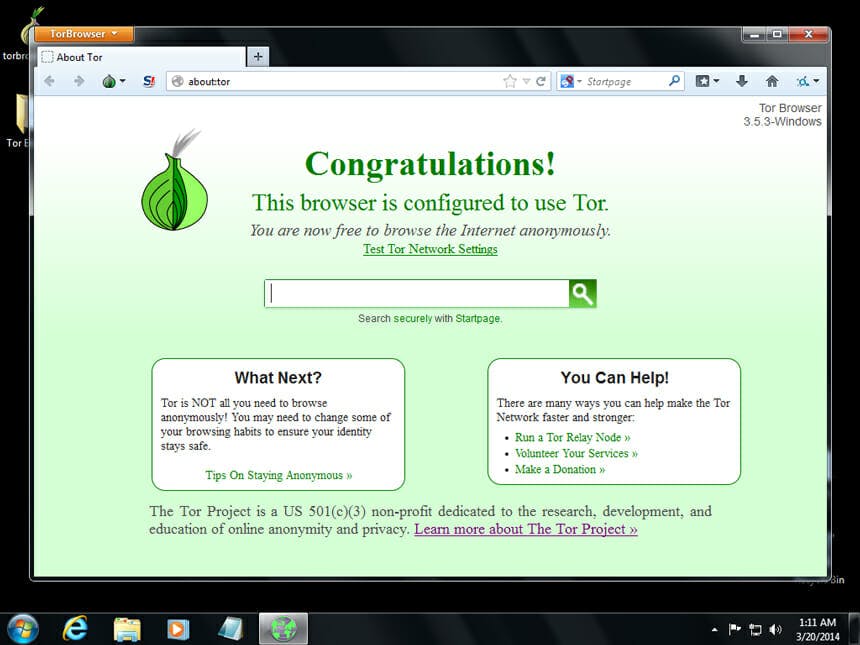If you think search engines like Google and Bing let you probe the entire web, you’re totally wrong. You’re barely scratching the surface of the web—literally. Below the web’s outer crust—the one you’re accessing right now to read this article—flows other layers of the internet that you can’t find through search. But with a little bit of know-how, anyone can dive into the web’s deep end to find some hidden treasures (and perhaps a bit more than that). Here’s a quick guide to the deep web, the dark web, and what you’ll find when you get there.
What is the dark web?
There are basically three parts to the world wide web: surface web, deep web, and dark web.
The surface web is everything that’s publicly available and accessible through search or typing a URL into your browser. The deep web, also known as the invisible web, is all the content on the web that is not indexed by standard search engines, such as email clients, online banking websites, or pages that are inaccessible to crawlers, the software that indexes the web for search engines. Some of those pages can still be accessed if you have the URL while others require you to have login credentials. According to expert estimates, the deep web is 500 times larger than the surface web.
The dark web, however, is a totally different beast—a tiny fraction of the web that is only accessible through specialized software such as the Tor browser. However, the term “dark web” is also often used to refer to the darknet, the overlay networks that are used to anonymize communications and obfuscate both the origin and destination of internet traffic.
READ MORE:
- How to access the deep web
- How to buy drugs on the deep web
- Here are the 13 best deep web search engines
- How Experian can protect you from identity theft
Who uses the dark web?
The main characteristic of the dark web is its anonymity, which makes it appealing to a number of actors. Like all innovative tools, the dark web is an instrument to shady and illegal activities, such as child pornography and the sale of drugs, firearms, and stolen credit card numbers.
One of the most famous cases that involves the dark web is that of Silk Road, the first modern online black market that was created on the dark web. The website was shut down in 2013 and its founder is serving a life sentence in prison. Naturally, many other similar websites have sprouted in recent years. Earlier this month, AlphaBay, another dark web marketplace that made $600,000 and $800,000 a day, was shut down by law enforcement.

However, the dark web is also being used for many other activities that are mostly legitimate (though not necessarily legal, depending on your perspective). Edward Snowden, the famous whistleblower who exposed the U.S. government’s mass surveillance program, used the dark web to send information to reporters and media outlets.
Journalists and activists also use the dark web to avoid being traced by autocratic governments or other actors that might want to harm them.
In countries where the government restricts access to specific websites and social media networks such as Facebook, Twitter, and YouTube, dark web tools can help circumvent censorship.
How to access the dark web?
The most famous tool to get on the dark web is the Tor browser. With Tor, you can access websites whose address ends with the .onion extension. These are websites that are exclusively available on the dark web and can’t be accessed through normal browsers.

Tor enables you to access all the other surface and deep websites with the added benefit that it anonymizes your browser traffic by encrypting it and deflecting it across several computers—called Tor nodes—before sending it to its destination.
However, there are several things you should know about Tor:
- Tor’s browsing experience is considerably slower than normal browsers because of the anonymization technique.
- Some websites block traffic coming from Tor browser.
- While Tor protects you from eavesdropping and surveillance, it won’t protect you from websites that contain malicious content.
With those considerations in mind, have fun surfing the dark web, and stay out of trouble.
Ben Dickson is a software engineer and the founder of TechTalks. Follow his tweets at @bendee983 and his updates on Facebook.


